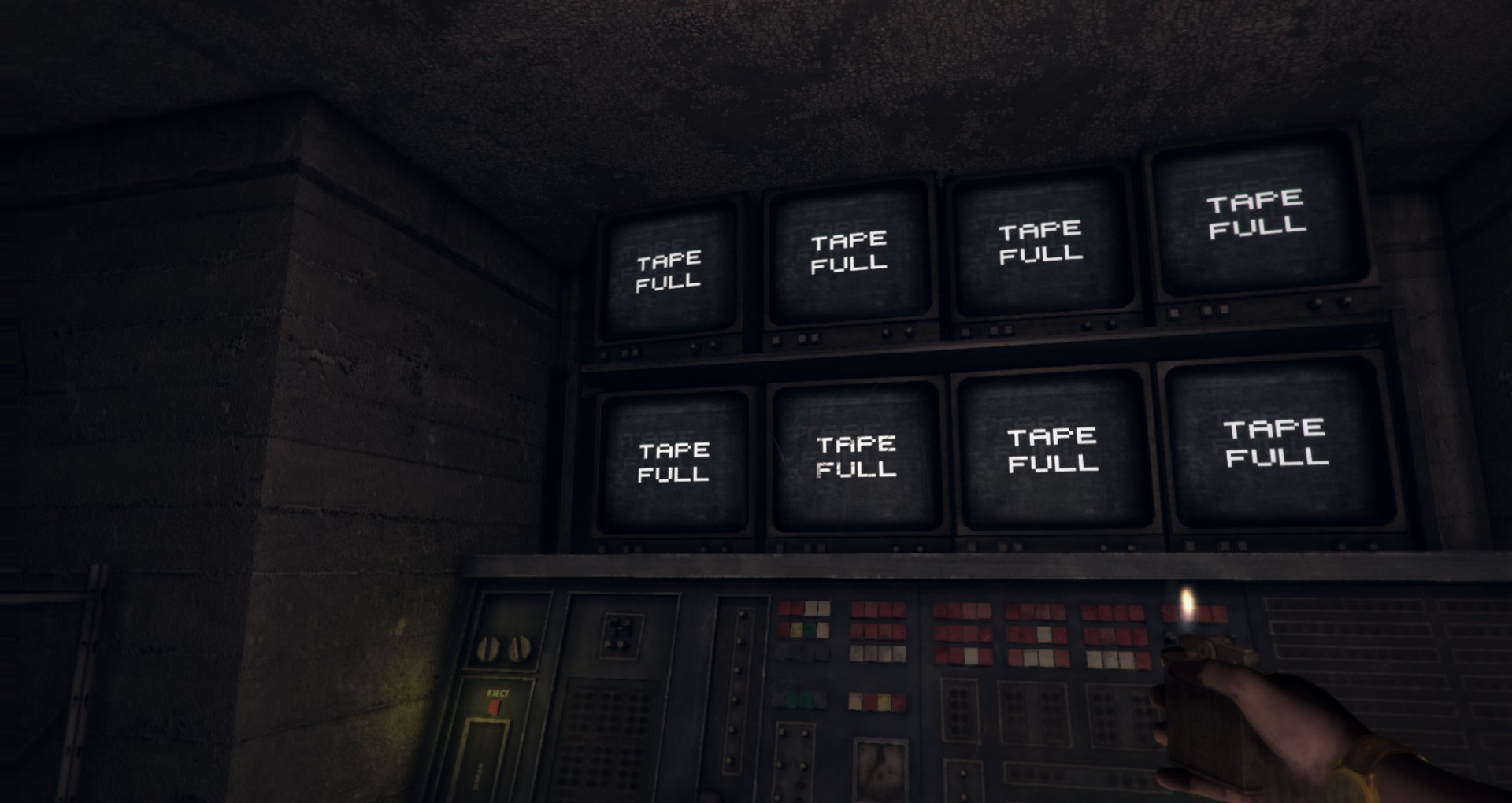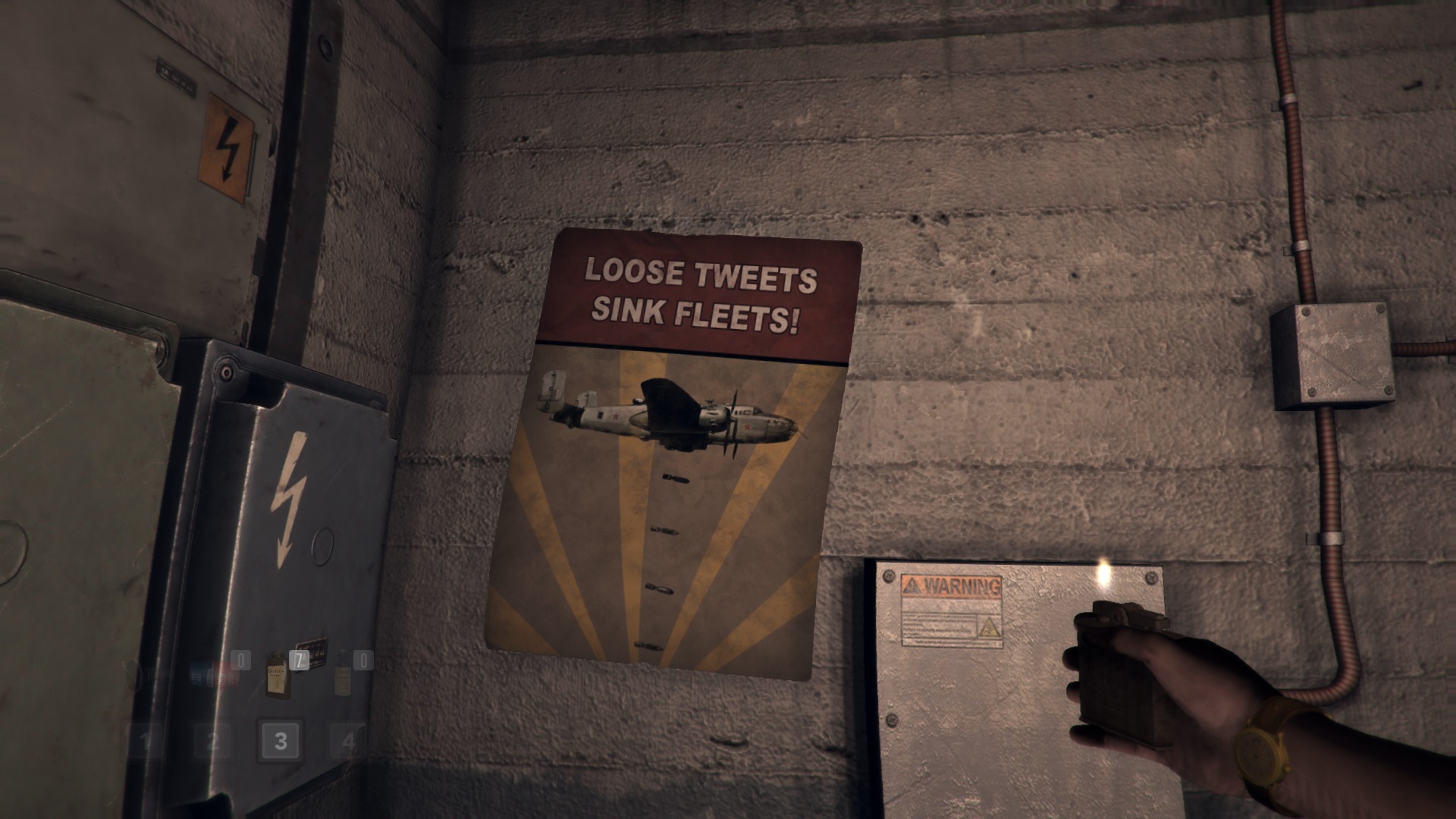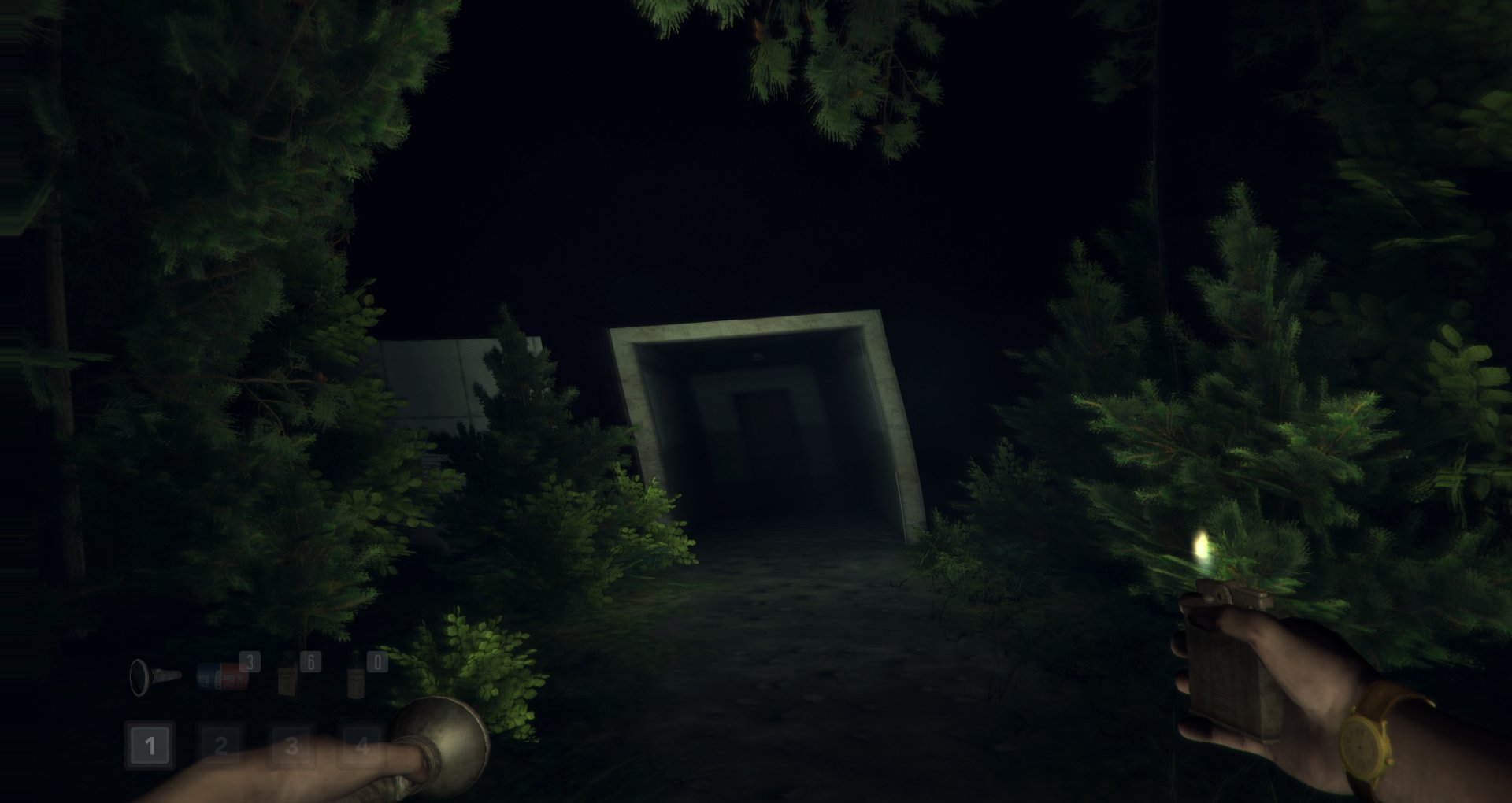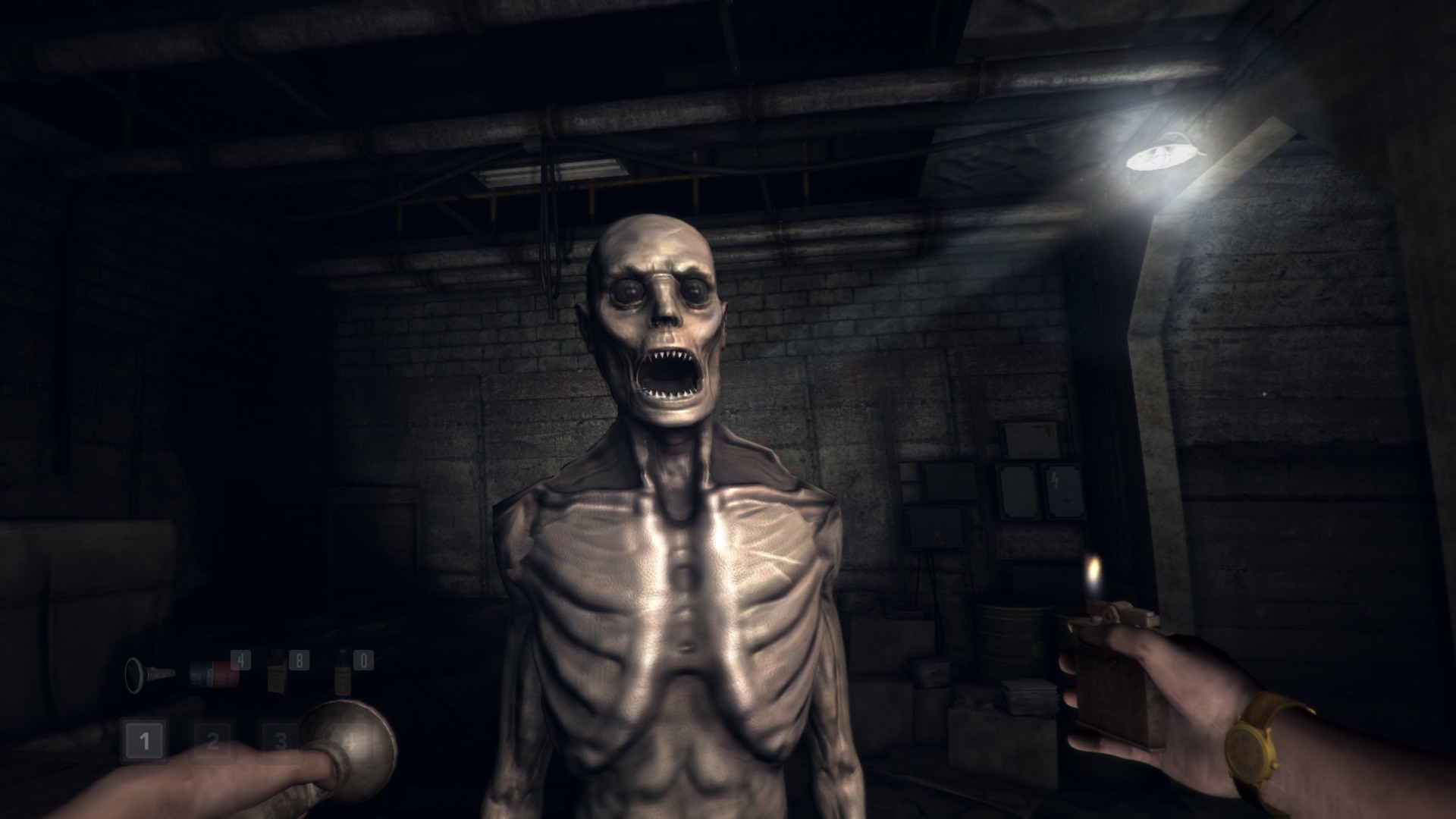Our Verdict
Hektor's level design mind games are cool, but its 90 minutes of jump scares would be better spent on so many other horror games.
PC Gamer's got your back
What is it? A first-person horror game.
Reviewed on: AMD Quad Core 3.3GHz, 16GB Ram, GeForce GTX 660 Ti PC
Alternatively:Outlast, Alien: Isolation.
Copy protection: Steam
Price: $15/£10
Release date: Out now
Publisher/Developer: Meridian4/Rubycone
Multiplayer: None
Link: Official site
Playing Hektor is like walking through an M.C. Escher print if M.C. Escher was a sadistic psychopath. I wake up in the bowels of what is either an abandoned medical facility, prison, insane asylum, or some disturbing amalgamation of the three. The trick is that, as I wander through the dark, claustrophobic halls with nothing to light my way but the world's longest-lasting lighter and least battery efficient flashlight, Hektor folds the environment in on itself and opens it back up according to some mysterious logic.
It's subtle at first. The facility is pretty bare, with only a few boxes, desks, hospital beds, and maybe a sheet covering a human shape. It's easy to get lost, as it often is in first-person horror games, but it didn't take long before I walked around a corner only to find myself in the same room I just left behind me. Other times, I'd walk around in circles, not sure how to proceed, only to suddenly find a door that was previously locked wide open, or a familiar hallway leading me to a completely new location.
The best thing about Hektor's spatial trick is that it does it seamlessly. I could never tell when it opened doors, closed them, led me in circles, or allowed me to move on. At some point, I learned that, unlike every other first-person game I play, there's no point in trying to keep a mental map of my environment. Instead, it was best to just keep moving forward, quickly, and have faith that the rooms and hallways would align when Hektor was ready to let me proceed.
It's not the first time I've seen the geometry of a level rearrange itself radically when I turned my head in a first-person game. I remember it was quite a novelty in the first FEAR, and The Stanley Parable used similar tricks more recently in really effective ways. The problem with Hektor is that its tricky level design is the only interesting thing about it.

One trick pony
Cool as it is, the mind games wore thin long before I finished Hektor, which took about 90 minutes. There is nothing to do but move forward, choosing to go right or left arbitrarily. It's dark, so it was easier to keep moving if I had batteries for my flashlight, but Hektor is generous with them, so I rarely ran out.
I suppose that the impossible, confusing level-design is meant to reflect the main character's mind, which through a vaguely told story, I understand is a screw or two loose. It's an interesting idea, but madness here is just relentless confusion. All Hektor knows how to do is rearrange hallways, so that's all it does.

There are creepy monsters, too, of course, but they don't add much. The first and more common, a zombie of sorts, did nothing but appear at random to make scary noises. With the caveat that I am a scaredy-cat, this did actually make my heart skip a beat almost every time. It's late at night, it's dark, there's scary music, and something came out at me out of nowhere and yelled "boo!" You got me Hektor, I jumped, congratulations at meeting the minimum requirements for being a horror game.
Keep up to date with the most important stories and the best deals, as picked by the PC Gamer team.
Startling as it is, this monster isn't interesting to interact with. It doesn't force me to rethink how I move through the environment as, say, Alien: Isolation's alien. Hektor morphed my vision at times, making the image sway, wobble, and twist, and it seems like this monster may have made that effect even more severe. At the beginning, I was told never to forget to take my pills, which are also scattered around the environment, but these didn't seem to have an effect on the wobbly vision, so it's not like I had to manage my pills supply in relation to monsters. Even after finishing Hektor, I have no idea what the pills did, and all the wobbliness did is make me a little queasy.

Cheap thrill
The other type of monster, a zombie with big sharp appendages jutting out of its back, just walked up to me clumsily and hit me three or four times before I died. I could run, but why should I? When I died, I just respawned at a random location, and since the environment is abstract, I didn’t lose a measurable amount of progress. Actually, dying seemed to move me forward faster, and it also reset the wobble-vision, so I learned to embrace death, hugging monsters as soon as I saw them.
These monsters animate horribly, by the way. It was a comic relief to watch this supposedly nightmarish creature come to take my life in awkward, stiff little half steps. He was ugly too, and not in a disturbing way. He just seemed like a 3D model you'd get for free from the "spooky" section of the Unity 3D asset store.
Hektor doesn't look horrible overall. Most of the time I was looking at very dark, bare rooms, which is not a tall order technically or artistically. Some assets, and in particular one out-of-character poster that jokes about tweets, repeat way to often, but I don't mind that too much. Have you ever been in a hospital or a prison? They recycle art assets in real life too.
I'd tell you more about Hektor but there's nothing else to it. You're in a dark facility, you keep moving forward, and scary things happen. That's the game. It lasts for an hour and a half, it costs $15, but I wouldn't recommend you play it even at that low barrier to entry.
Hektor's level design mind games are cool, but its 90 minutes of jump scares would be better spent on so many other horror games.


